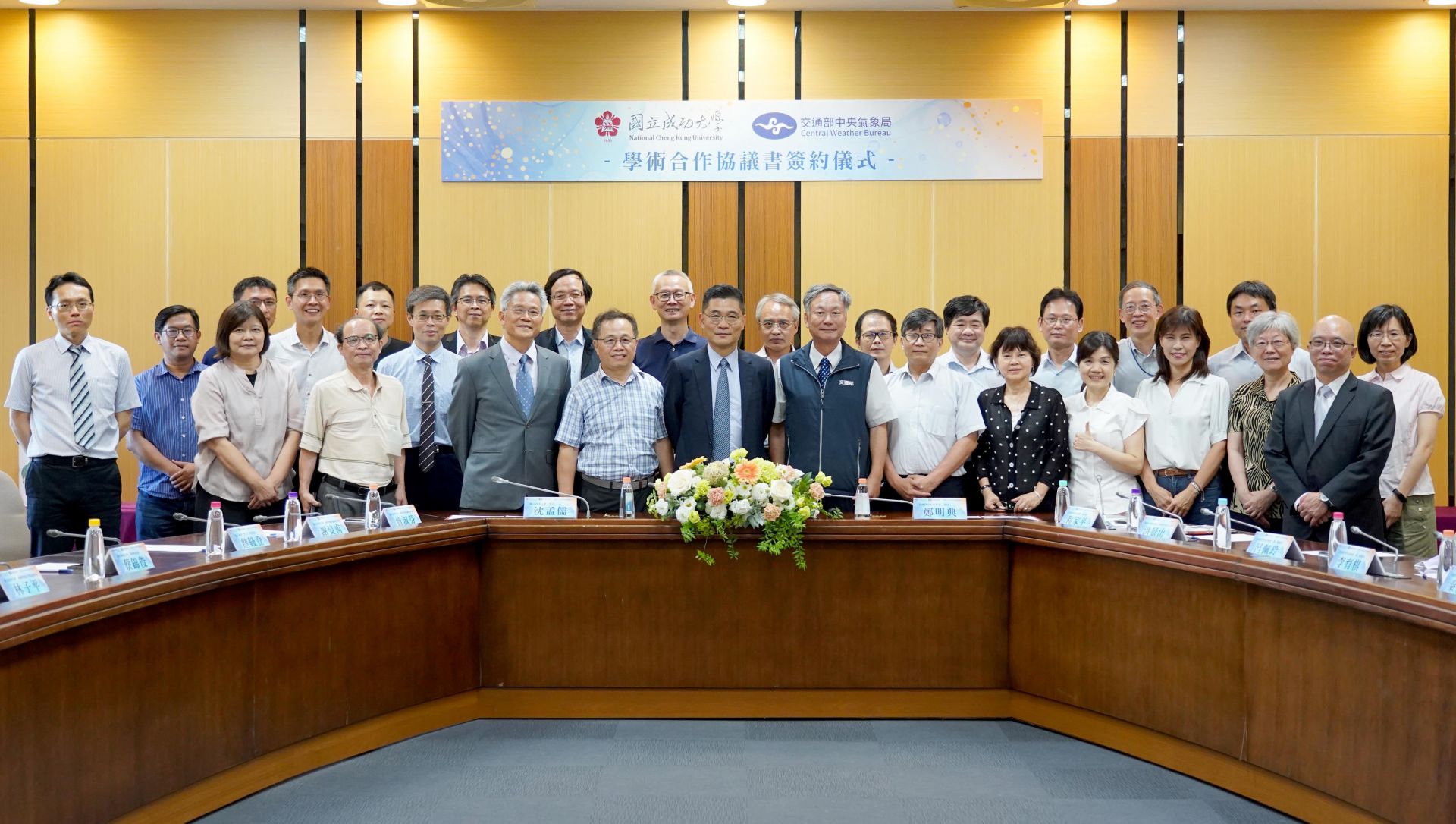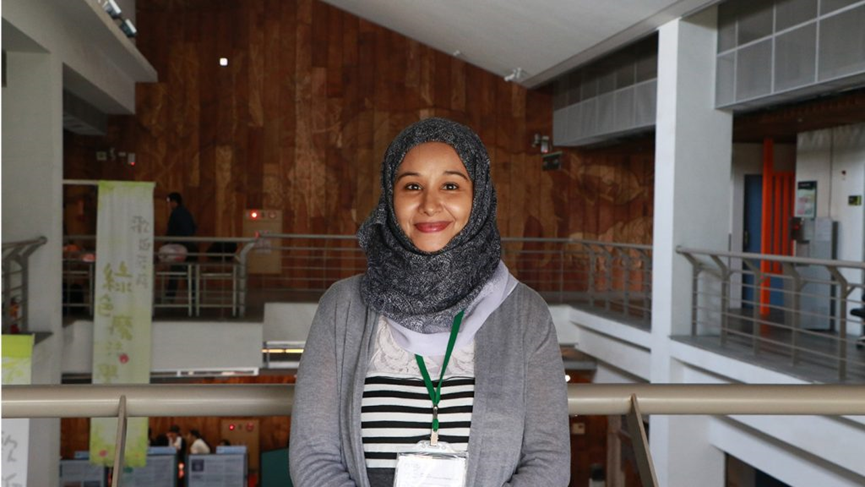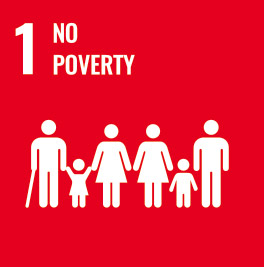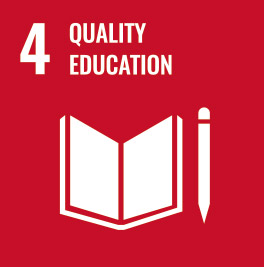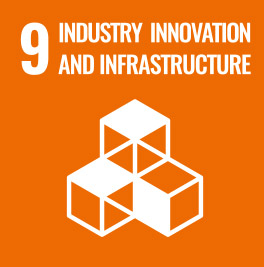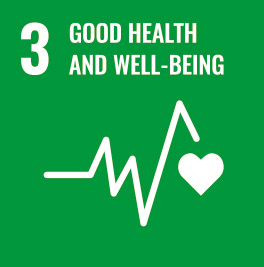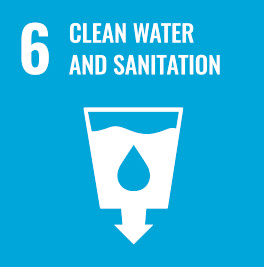The worst humanitarian crisis in decades is happening right now in Yemen; however, the conflict in Yemen didn’t stop Fathiah Zakham from pursuing science.
Fathiah Zakham, an assistant researcher at the Hodeidah University, Hodeidah, Yemen, is one of the five winners of 2017 Gro Brundtland Award. At her arrival in Taiwan, she unveils a gentle complexion with a lovely smile saying, “It takes me almost 7 days to travel from Hodeidah to Taipei because the situation in Yemen is so difficult.”
Winning the Gro Brundtland Award means a lot to Zakham. She says, “I am a female Yemeni researcher coming from a country suffering from war and humanitarian crisis and this award will provide me a hope for better achievement and advancement of science and make me more motivated.”
Growing up in Jeddah, Saudi Arabia, and then Hodeida, Yemen, Zakham has great passion to discover the secret of life and an interest in genomics.
She holds a PhD in Microbiology and Molecular biology within the UFR (Immunology-Biochemistry), faculty of science in the Mohammed V University in Rabat, Morocco. Now she works at the laboratory of microbiology at the School of Medicine and Health Science in Hodeidah University.
“I am working on the field of the transmissible diseases and I try to diffuse the elementary notions of hygiene and infectious disease prevention in order to protect public health,” she says. Zakham’s main topic of research is the direct diagnosis of Mycobacterium tuberculosis (MTB), the causal agent of tuberculosis and the detection of Multidrug resistant tuberculosis strains. She is also working on other bacterial resistance, especially in Gram negative bacteria.
“For my postdoctoral studies, I would like to design, characterize and investigate novel biodegradable polymer particles for the delivery of vaccine antigens and to measure the protective efficacy and the immunological response induced by those vaccines,” she adds.
Attending the Gro Brundtland Week 2017 in Taiwan, Zakham is looking forward to creating new collaborations with other scientists from around the world. Her goal is to build and create a network for fighting TB and other infectious diseases.
“Moreover, I hope to transfer the new knowledge that I learnt to my students and colleagues for achieving this point I am joining different events to be always updated,” she says.
Family has played an important role in Zakham’s career, particularly when she is in need of emotional and financial support.
"My biggest goal is to help my daughter to realize her dreams and become independent," Zakham says.
Currently, female scientists are suffering in Yemen and there is a huge gender disparity in education and scientific training, she says.
In Yemen and after war, the humanitarian impact of the conflict has been catastrophic, according to Zakham. “We have different challenges public health threats. The infrastructure damage has contributed to the raise of several communicable diseases outbreaks.”
Fighting against malnutrition in Yemen is an absolute challenge, she adds.
Fathiah Zakham, an assistant researcher at the Hodeidah University, Hodeidah, Yemen, is one of the five winners of 2017 Gro Brundtland Award. At her arrival in Taiwan, she unveils a gentle complexion with a lovely smile saying, “It takes me almost 7 days to travel from Hodeidah to Taipei because the situation in Yemen is so difficult.”
Winning the Gro Brundtland Award means a lot to Zakham. She says, “I am a female Yemeni researcher coming from a country suffering from war and humanitarian crisis and this award will provide me a hope for better achievement and advancement of science and make me more motivated.”
Growing up in Jeddah, Saudi Arabia, and then Hodeida, Yemen, Zakham has great passion to discover the secret of life and an interest in genomics.
She holds a PhD in Microbiology and Molecular biology within the UFR (Immunology-Biochemistry), faculty of science in the Mohammed V University in Rabat, Morocco. Now she works at the laboratory of microbiology at the School of Medicine and Health Science in Hodeidah University.
“I am working on the field of the transmissible diseases and I try to diffuse the elementary notions of hygiene and infectious disease prevention in order to protect public health,” she says. Zakham’s main topic of research is the direct diagnosis of Mycobacterium tuberculosis (MTB), the causal agent of tuberculosis and the detection of Multidrug resistant tuberculosis strains. She is also working on other bacterial resistance, especially in Gram negative bacteria.
“For my postdoctoral studies, I would like to design, characterize and investigate novel biodegradable polymer particles for the delivery of vaccine antigens and to measure the protective efficacy and the immunological response induced by those vaccines,” she adds.
Attending the Gro Brundtland Week 2017 in Taiwan, Zakham is looking forward to creating new collaborations with other scientists from around the world. Her goal is to build and create a network for fighting TB and other infectious diseases.
“Moreover, I hope to transfer the new knowledge that I learnt to my students and colleagues for achieving this point I am joining different events to be always updated,” she says.
Family has played an important role in Zakham’s career, particularly when she is in need of emotional and financial support.
"My biggest goal is to help my daughter to realize her dreams and become independent," Zakham says.
Currently, female scientists are suffering in Yemen and there is a huge gender disparity in education and scientific training, she says.
In Yemen and after war, the humanitarian impact of the conflict has been catastrophic, according to Zakham. “We have different challenges public health threats. The infrastructure damage has contributed to the raise of several communicable diseases outbreaks.”
Fighting against malnutrition in Yemen is an absolute challenge, she adds.
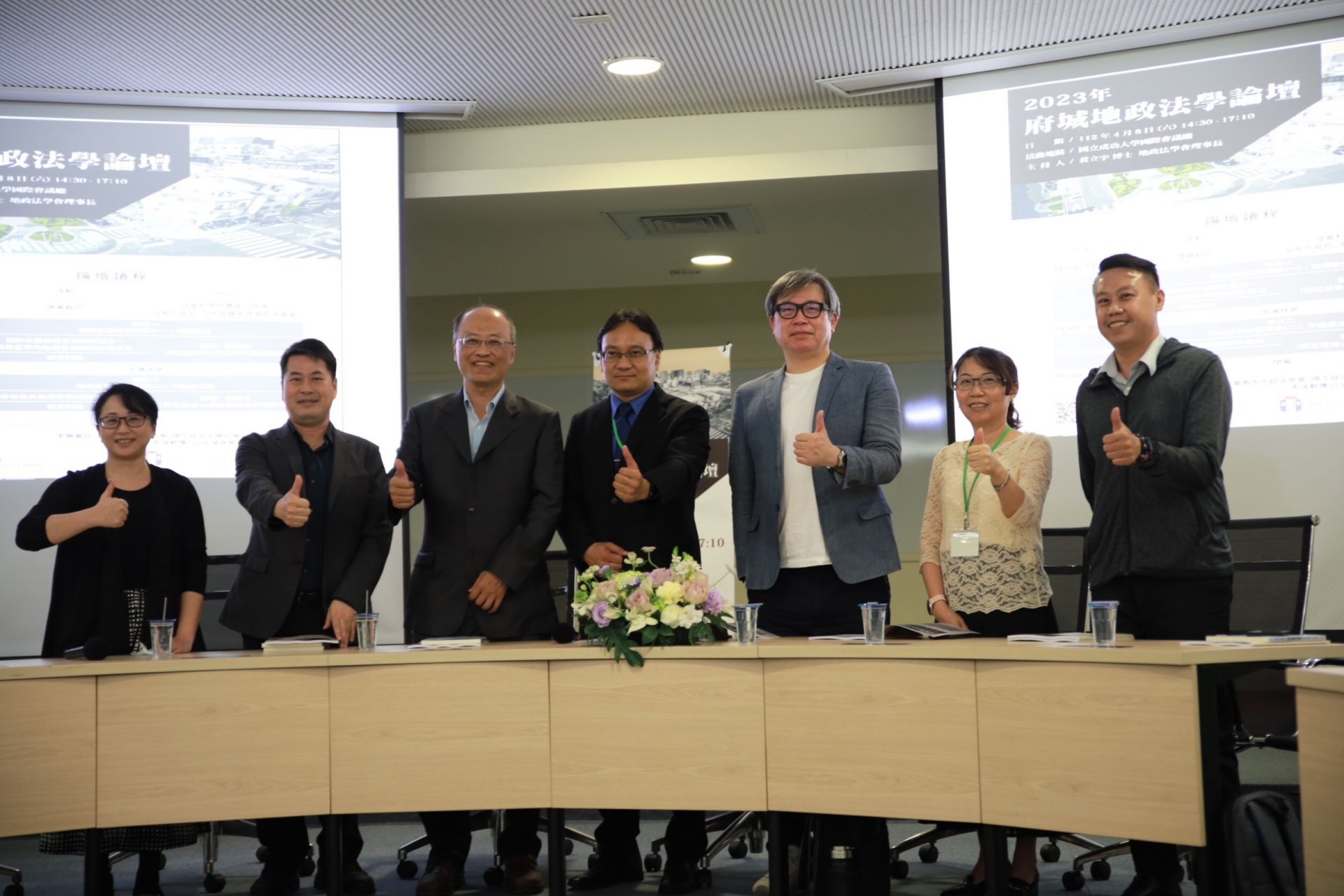
SDG162023 Fucheng Land Administration Law Forum in NCKU : Two-way Exchange and Learning Between Scholars, Experts and Practitioners
View more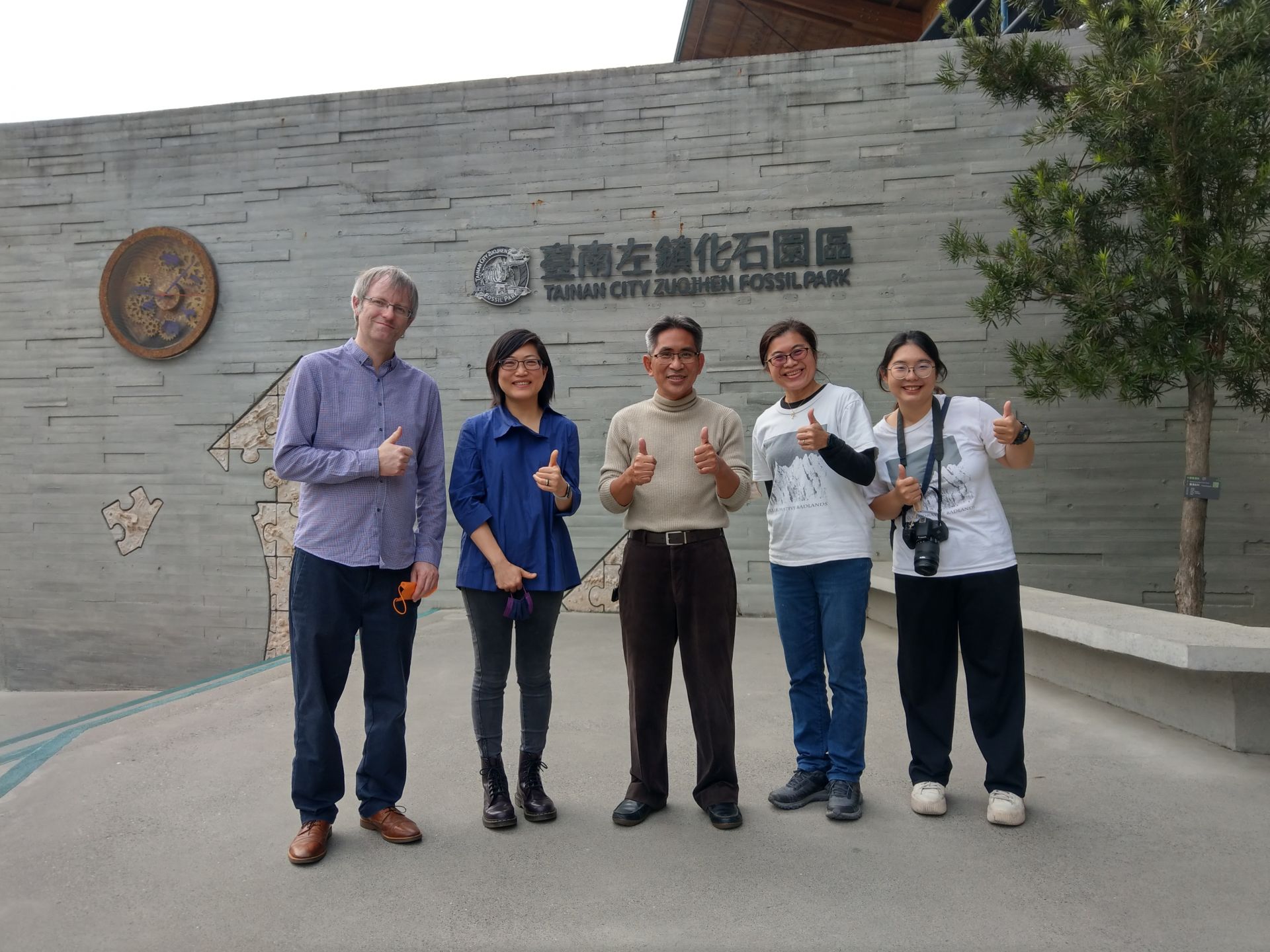
SDG16NCKU USR Team and Scholars from the University of Liverpool, Joining Forces to Create Bright Results.
View more